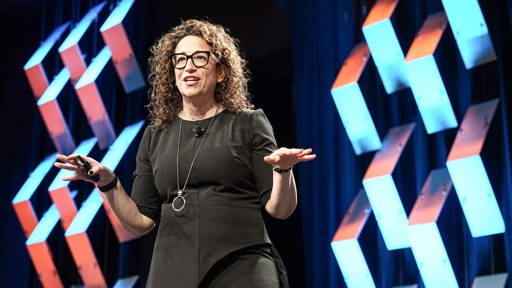Fast Company: From AI to at-home care. The hospital of the future looks nothing like today’s
The current situation in the health market is forcing hospitals to transform from huge behemoths into small, comfortable and specialist facilities. This is suggested by a new report prepared by Deloitte. What conclusions were drawn by its authors? Care will be transferred to the patient’s home and the GP’s office. A visit to the hospital will be necessary in the case of surgeries and acute life-threatening conditions. New medical devices are getting smaller and more mobile, so procedures such as chemotherapy, complicated tests and childbirth will take place in local outpatient clinics.
The COVID-19 pandemic has accelerated the development of telecare and some of medical services offered by hospitals will be provided remotely. The patient’s health will be monitored thanks to telemedicine. Besides, nowadays patients themselves feel safer outside the hospital and such an approach may be here to stay. Strategic changes are triggered by the necessity to look for savings in the health care system while maintaining a high quality of care. Smaller hospitals will have modern equipment and artificial intelligence systems will coordinate the process of planning and providing health care. The traditional organizational structure with specialist wards will also be a thing of the past. Hospitals of the future will be characterized by modularity.
In the smaller hospitals artificial intelligence systems will coordinate the process of planning and providing health care
A patient admitted to a given ward will be there until the end of their hospital stay, except when a surgery is needed. The priority will be to keep patients out of the hospital, which is a cheaper and safer solution in the case of mild conditions which do not require hospitalization. Thanks to this, shared rooms will be replaced with smaller ones to ensure the intimacy of the hospital stay and contact with loved ones. Moreover, hospital hotels will become the norm. They will enable the patient’s family to stay nearby. It will be related to a general transformation in health care, which will be aimed at holistic care and no longer focused on medical procedures.
Hospitals will concentrate more on ensuring an adequate level of hospitality. They will become open and green places which will offer additional free-time activities. The Deloitte experts admit that some of these changes may take long years, but many will be accelerated by the coronavirus pandemic and the increasing cost pressure in health care systems.
Wired: Your Apple Watch could soon tell you if you’ve got coronavirus
Millions of people around the world use smartwatches and wristband trackers which measure their heart rate, body temperature or blood oxygen level. A detailed analysis of such data may suggest when we will get sick, even a few days before the first symptoms appear. Data on the basic health parameters can also suggest that you are infected with SARS-CoV-2. This diagnostic strategy is cheap and widely available. The key is a correct data analysis, which will take into account an individual health model with the help of artificial intelligence.
Research in this field, with 40,000 participants, is being conducted e.g. by Scripps Research and led by Eric Topol, a famous Californian cardiologist and digital health expert. Topol feels hopeful about using new technologies to diagnose COVID-19. Traditional tests are relatively expensive and their scale of application is severely limited. Digital screening with the help of wearable devices gives us hope for enhancing preventive activities in health care. Such technologies collect data in real time, create long-term models and will be able to detect abnormalities. Some researchers believe that smartwatches and trackers can detect COVID-19 superspreaders, i.e. individuals who have no symptoms and infect others without knowing it. In up to half of such cases, chest scans show signs of the disease.
We also know that the virus can take a toll even when the course of the disease is mild. Researchers are not one hundred percent sure which parameters may be helpful in identifying a coronavirus infection. Eric Topol believes that it may be the resting heart rate, which goes up a day or even a few days before the first symptoms kick in. But it is not that simple because changes in the heart rate can be caused by other things as well. In a study which involved 600 volunteers wearing Oura Rings, researchers were able to predict COVID-19 infections three days before symptoms appeared, with an accuracy of over 90%. In August, Fitbit announced that in its research involving 1,000 coronavirus patients, they were able to predict more than half of the positive cases a day before symptoms appeared, with an accuracy of 70%.
CB Insights: 150 digital health start-ups transforming the future of healthcare
CB Insights has published The Digital Health 150, its annual report with the 150 most promising digital health start-ups, chosen from 8,000 candidates. This year’s winners include start-ups working e.g. on interoperability and home care.
In 2020, a group of 150 leading start-ups raised over USD 20 million in 600 transactions with over 900 unique investors. The majority of leaders are young companies which are developing telemedicine platforms (31% of all companies, an increase caused by the COVID-19 pandemic), remote patient monitoring (27%), digital treatment and patient coaching (18%). As they are fighting to enter the market, start-ups often cooperate with key organizations from the health industry. For example, Happify Health, which develops digital therapy in the field of mental health, cooperates with the American Heart Association, Sanofi and Cigna. In 2020, one of the leading categories turned out to be clinical intelligence solutions. They include tools which help service providers and payers make clinical decisions to provide health care more effectively and efficiently. Systems used to coordinate health care, screening and diagnostics are equally popular.
10 out of the selected start-ups are developing medical imaging solutions which make use of AI. Moreover, the optimization of health care costs is also becoming a priority for service providers, patients and insurers. 20 start-ups are developing solutions in this area. Start-ups dealing with mental health have grown considerably. They have raised a record sum of USD 575 million in equity funding. Another quickly growing market is women’s health. When it comes to geographical distribution, digital health centers are growing the fastest in China, Great Britain, France and Canada. Companies in the ranking come from 18 countries, but 77% of them are based in the USA.








